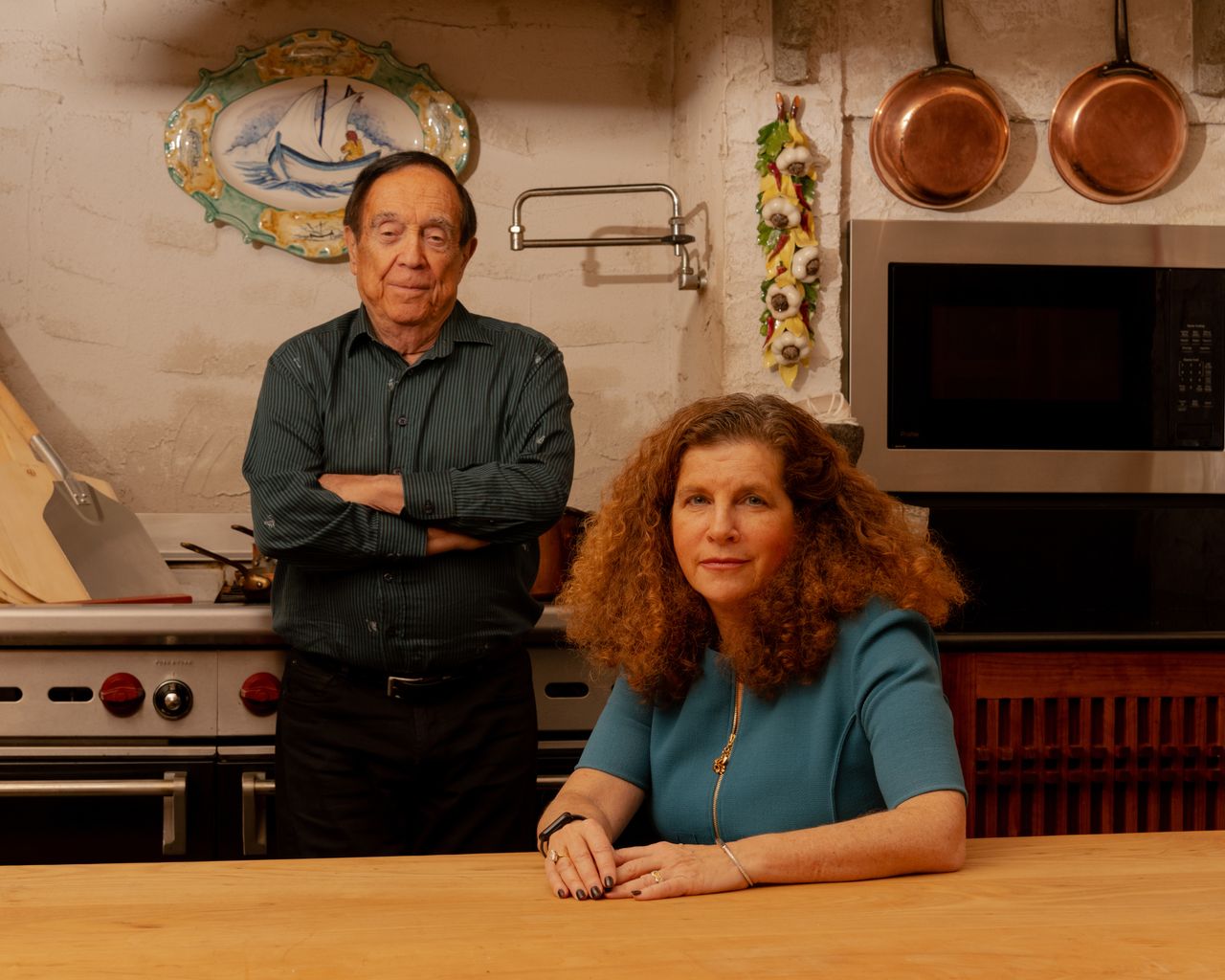How Divorce Lawyers and Marriage Counsellors Manage Money With Their Partners
They spend all day thinking about money and relationships—so what do they do with theirs?
Divorce lawyers and couples counsellors see how often money leads to the end of a relationship. When these professionals return home, they put into action several steps to make sure they have a healthy relationship with their finances and their partners.
Lisa Zeiderman, 61 years old, a divorce lawyer in New York, and her husband, Lloyd Zeiderman, an 86-year-old wealth and business manager, spent the better part of their respective careers thinking about money and relationships. They have front-row seats to how financial issues can tear couples apart.
At home and at work, Mrs. Zeiderman preaches “the mailbox rule.”
Every weekend, when she and her husband drive out for breakfast, she stops the car at the end of the driveway and checks the mail. While they share money, he takes the lead on managing their investments and communicating any new developments to his wife. But she said checking the literal receipts—both in the mail and digitally—can offer peace of mind.
“If the credit-card statements are no longer available or passwords are changed or you used to have discussions about money and now you don’t, that may be the sign of something brewing around you,” she said.
Sharing money with a romantic partner leads to greater overall relationship satisfaction, and combining financial power in turn leads to greater wealth for the household, studies have found. Despite these demonstrated benefits, many couples see talking about money as a gateway to more fights and less peace.
But many seasoned legal, financial and counselling professionals say they have seen firsthand the repercussions of letting money problems fester. We asked some of them to share even more lessons they have learned and put to the test in their own relationships.
Talk. All the time. Especially when it is uncomfortable.
“Just talk about it” is some of the most common—and occasionally infuriating—advice quarrelling couples receive. But in practice, maintaining a low-stakes, ongoing daily discussion about expenses, savings and your respective financial habits can lessen the tension many people feel around these money conversations, said Matt Lundquist, the 46-year-old founder and clinical director of Tribeca Therapy in New York who also counsels couples.
For the Zeidermans, who have been married for almost 25 years, the conversation never stops—and that is intentional, they both say.
“There’s no scheduled sit-down, and it isn’t an organised event,” Mr. Zeiderman said. “But the bill comes in, we talk about it. If we’re buying something for her daughter or my son, we make a joint decision.”
They both admit they aren’t always in perfect agreement. Over the years, Mr. Zeiderman has lent money to an old friend. When she first saw the wire transfer, Mrs. Zeiderman had some questions. But in talking about the issue, she said, they agreed to call a truce: when a particular expense is especially personal to the other partner, they can allow some leeway.
When Mr. Lundquist and his wife of 13 years talk about coming expenses, savings plans or the impact of inflation on their budget, they don’t only talk about the numbers, he said.
“Don’t just sit down and go through the budget, but parallel to that, say ‘how do you feel about that?’” he said. “It’s astonishing how many couples don’t talk about that and the consequences of that.”
Lay it all on the table.
Valentina Shaknes, a 43-year-old New York City lawyer and one of the founding partners at Krauss, Shaknes, Tallentire & Messeri, has become familiar with a certain story: A successful, confident woman in the throes of divorce proceedings realizes how little she knew of the overall household finances.
“They would really rely and defer to their husbands to manage their family finances, which is so different from their professional lives, where they’re running the show,” Ms. Shaknes said.
In divorce proceedings, Ms. Shaknes describes a document she says she has since come to love: the statement of net worth. Each party fills out expenses, income, assets, liabilities and more in granular detail, so that each has the complete picture of the other’s financial situation. Ms. Shaknes recommends couples try doing this exercise while they are still together, rather than waiting until a breakup.
At home, Ms. Shaknes recreates the process with her husband of 23 years. Each time, they discuss mortgage payments, real-estate taxes and credit-card spending, and adjust for new factors like education costs for their children. The exercise may be tedious, but she’s adamant they both have eyes on the numbers.
“Our lives are so full with all of the responsibilities and obligations, and you have to divide and conquer,” she said. “But you also need to know.”
Be willing to change.
Adam Kol, a mediator, tax lawyer and former financial adviser based in Fort Lauderdale, Fla., calls himself “The Couples Financial Coach.” When he and his wife got married at the start of 2023, he said they had been sharing money for almost a year, in part to more easily manage the expenses related to their wedding.
At the start of their relationship, Mr. Kol identified as “the saver” and his wife as “the spender.”
They have since learned to spend money on things that enrich their lives, and vice versa. When they were first decorating their apartment, Mr. Kol said his wife took the lead on thrifting many of their artworks. Whenever he looks at the variety of pictures and art, Mr. Kol said he sees a visual representation of the middle road they found together.
“Like all couples, we moderate each other,” he said. “She helps me loosen up a little bit and enjoy the day-to-day.”
 Copyright 2020, Dow Jones & Company, Inc. All Rights Reserved Worldwide. LEARN MORE
Copyright 2020, Dow Jones & Company, Inc. All Rights Reserved Worldwide. LEARN MORE
This stylish family home combines a classic palette and finishes with a flexible floorplan
Just 55 minutes from Sydney, make this your creative getaway located in the majestic Hawkesbury region.
Continued stagflation and cost of living pressures are causing couples to think twice about starting a family, new data has revealed, with long term impacts expected
Australia is in the midst of a ‘baby recession’ with preliminary estimates showing the number of births in 2023 fell by more than four percent to the lowest level since 2006, according to KPMG. The consultancy firm says this reflects the impact of cost-of-living pressures on the feasibility of younger Australians starting a family.
KPMG estimates that 289,100 babies were born in 2023. This compares to 300,684 babies in 2022 and 309,996 in 2021, according to the Australian Bureau of Statistics (ABS). KPMG urban economist Terry Rawnsley said weak economic growth often leads to a reduced number of births. In 2023, ABS data shows gross domestic product (GDP) fell to 1.5 percent. Despite the population growing by 2.5 percent in 2023, GDP on a per capita basis went into negative territory, down one percent over the 12 months.
“Birth rates provide insight into long-term population growth as well as the current confidence of Australian families,” said Mr Rawnsley. “We haven’t seen such a sharp drop in births in Australia since the period of economic stagflation in the 1970s, which coincided with the initial widespread adoption of the contraceptive pill.”
Mr Rawnsley said many Australian couples delayed starting a family while the pandemic played out in 2020. The number of births fell from 305,832 in 2019 to 294,369 in 2020. Then in 2021, strong employment and vast amounts of stimulus money, along with high household savings due to lockdowns, gave couples better financial means to have a baby. This led to a rebound in births.
However, the re-opening of the global economy in 2022 led to soaring inflation. By the start of 2023, the Australian consumer price index (CPI) had risen to its highest level since 1990 at 7.8 percent per annum. By that stage, the Reserve Bank had already commenced an aggressive rate-hiking strategy to fight inflation and had raised the cash rate every month between May and December 2022.
Five more rate hikes during 2023 put further pressure on couples with mortgages and put the brakes on family formation. “This combination of the pandemic and rapid economic changes explains the spike and subsequent sharp decline in birth rates we have observed over the past four years,” Mr Rawnsley said.
The impact of high costs of living on couples’ decision to have a baby is highlighted in births data for the capital cities. KPMG estimates there were 60,860 births in Sydney in 2023, down 8.6 percent from 2019. There were 56,270 births in Melbourne, down 7.3 percent. In Perth, there were 25,020 births, down 6 percent, while in Brisbane there were 30,250 births, down 4.3 percent. Canberra was the only capital city where there was no fall in the number of births in 2023 compared to 2019.
“CPI growth in Canberra has been slightly subdued compared to that in other major cities, and the economic outlook has remained strong,” Mr Rawnsley said. “This means families have not been hurting as much as those in other capital cities, and in turn, we’ve seen a stabilisation of births in the ACT.”
This stylish family home combines a classic palette and finishes with a flexible floorplan
Just 55 minutes from Sydney, make this your creative getaway located in the majestic Hawkesbury region.






















